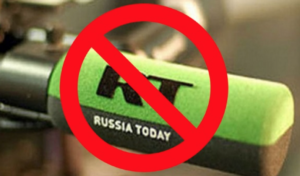 “Fake news” was not a term many people used 18 months ago, but it is now seen as one of the greatest threats to democracy, free debate and the Western order, the Daily Telegraph reports.
“Fake news” was not a term many people used 18 months ago, but it is now seen as one of the greatest threats to democracy, free debate and the Western order, the Daily Telegraph reports.
Digital literacy demands we acknowledge how our misuse of data allows purveyors of fake news to influence how political discourse is managed. Incorporating digital literacy into educational curriculums is a first step in teaching the public the importance of verifying the information they are consuming, argues Dr Joseph Dunne of London’s City University:
Peter Pomerantsev argues this process must be institutionalised if it is to be effective, with journalists, think tanks and NGOs working together in order to give information a proper context. Initiatives dedicated to combating the spread of online disinformation, such as the Arena project, will also need to become a permanent feature of modern journalism in order to articulate a new role of an independent press in the age of the internet. The spirit of collaboration the internet engenders can be applied to a new form of reporting where the public collaborate with professional journalists.
 There are five reasons why fake news and disinformation will almost certainly get worse despite concerted attempts by social media companies to clamp down, argues analyst Nathan Bomey:
There are five reasons why fake news and disinformation will almost certainly get worse despite concerted attempts by social media companies to clamp down, argues analyst Nathan Bomey:
- An explosion of fake video, audio and photos is coming: Artificial intelligence entrepreneurs are devising systems that will enable the easy fabrication of video and photos. Soon you’ll be able to create footage, sound clips and images that make it look like people did things they never did and said things they never said. And it will be available to the masses. The results will be “indistinguishable from reality,” said Jeff Clune, director of the Evolving Artificial Intelligence Laboratory at the University of Wyoming.
- The internet is getting better at giving us the answers we’re looking for: Microsoft researcher Ryen White concluded in a study that “search engines strongly favor a particular, usually positive, perspective, irrespective of the truth.” It’s a recipe for confirmation bias, which supercharges the spread of bogus information.
- Our natural human tendency is to cling to groups of like-minded people and skew the facts together: As Cultural Cognition Project researcher and Yale professor Dan Kahan told me, “people will selectively credit or reject the claim that somebody is an expert on something depending on whether the person’s view is consistent with the one that predominates in their group.”
- Professional journalists are losing sway over what Americans read and see: Facebook has admitted that people will see less news in their feeds. News stories with lots of back-and-forth comments will still surface. But that raises concerns that the most controversial and sensational content will reign over nuanced and thoughtful stories that might not generate immediate comments….
- Spreading misinformation pays off….RTWT
New America hosts a discussion on “Fact or Fiction: What Will It Take To Combat Misinformation and Disinformation in the Digital Age?” Schedule includes panel discussions on “The Threat of ‘Fake News’ and Efforts to Curb It.”
3:30 p.m. May 10, 2018. Venue: New America, 740 15th Street NW, Suite 900, Washington, D.C. RSVP: Maria Elkin, 202-847-4769, elkin@newamerica.org







